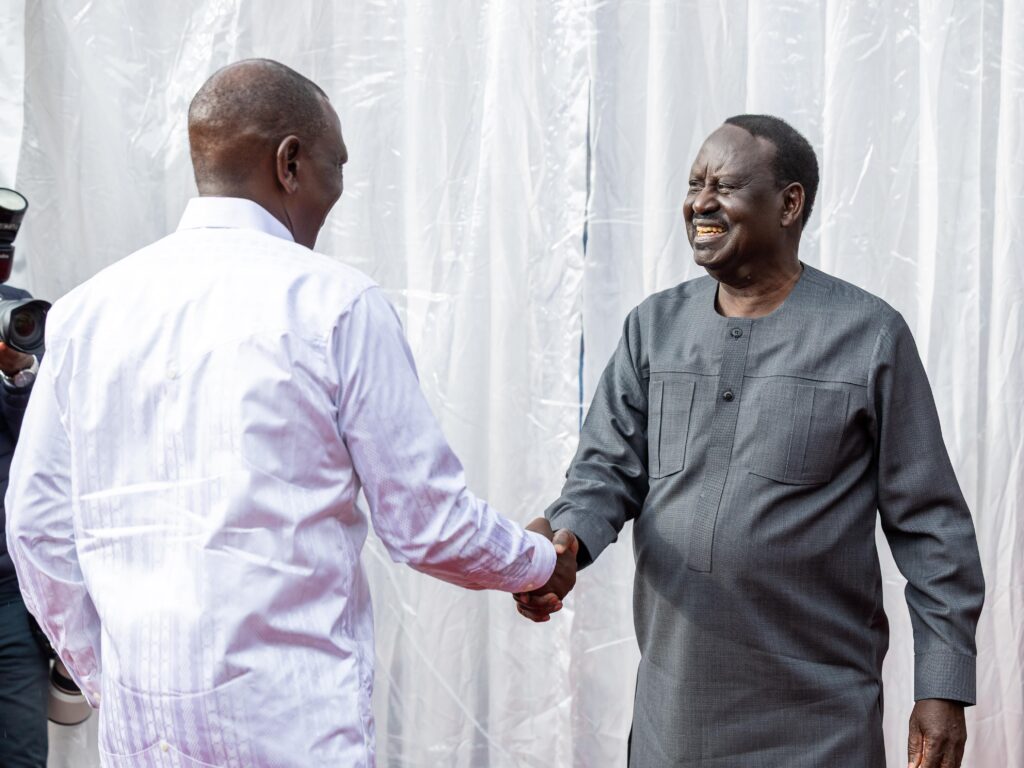Former Prime Minister Raila Odinga has revealed that he was initially opposed to the idea of forming a broad-based government, despite mounting pressure from within his own Orange Democratic Movement (ODM) party.
Speaking during a Sunday night interview on NTV, the Azimio la Umoja-One Kenya Coalition leader said that while the broader Azimio leadership had taken a firm stance against joining President William Ruto’s Kenya Kwanza government, a section of ODM leaders believed that participation in the expanded cabinet could help resolve the political deadlock and inject new ideas into national governance.
“We tried to consult among ourselves as Azimio if we could find a way of participating in a broad-based government. I myself was against it, and my other colleagues also,” Raila said. “But eventually, a group within my party felt that the stalemate required that some experts who are not part of the Kenya Kwanza regime join government to help steady the ship.”
Raila emphasized that his initial rejection stemmed from a lack of national consensus. He noted that President Ruto had promised to form a government in consultation with all stakeholders, but this dialogue never fully materialized. Raila said his camp preferred to stay out of government until the National Dialogue Committee (Nadco) process facilitated meaningful national conversation.
However, under pressure from ODM leaders who viewed cabinet inclusion as a strategic opportunity, Raila eventually conceded. The argument was that ODM technocrats could help bridge divides and address pressing economic and political challenges.
As a result, five of Raila’s key allies were appointed Cabinet Secretaries in the broad-based government. These include Hassan Joho (Mining, Blue Economy & Maritime Affairs), Wycliffe Oparanya (Cooperatives and MSMEs), Opiyo Wandayi (Energy), John Mbadi (National Treasury and EAC), and Beatrice Askul (ASALs & Regional Development).
While the move has sparked debate within the opposition ranks, Raila maintains that the decision was ultimately a pragmatic one driven by the need to address national issues with fresh perspectives. Nonetheless, he was clear that his original position was one of resistance to joining the Kenya Kwanza-led administration without broader consensus.

